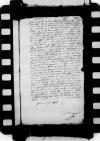List #2086
Ioannes DANTISCUS do Tiedemann GIESEHeilsberg (Lidzbark Warmiński), 1539-03-04
Regest polski:
Dantyszkowi podoba się treść listu, który we wspólnej [Prus Królewskich] sprawie Giese zamierza wysłać do króla [Zygmunta I]. Dziękuje też adresatowi za powiadomienie o planowanej ekspedycji posłańca na dwór. Przekazuje własne listy, m.in. do dziekana krakowskiego [Samuela Maciejowskiego] (wraz z kopią dla Giesego) i do królowej [Bony Sforzy], której odpowiada w sprawach przekazanych mu przez Fabiana [Wojanowskiego] Dameraua. Informuje, że kapituła [warmińska] właśnie głosuje nad przyjęciem Fabiana na miejsce zmarłego Henryka [Snellenberga].
Dantyszek nie jest zaskoczony tym, co adresat napisał o „Kości” (Os) [Stanisławie Kostce], uważa jednak, że u źródeł dążenia Kostki do przejęcia całkowitej władzy leżą namowy innych osób.
W sprawie Kosów Dantyszek radzi, aby - zgodnie z królewskim rozkazem - po wysłuchaniu na przyszłym sejmie [pruskim] argumentów obu stron przedstawić je królowi. Dantyszek wraz z Giesem będą wspierali sprawę na dworze. Jest dobrej myśli co do jej rozwiązania.
Rękopiśmienne podstawy źródłowe:
Pomocnicze podstawy źródłowe:
Publikacje:
| ||||||||
Tekst + aparat krytyczny + komentarzZwykły tekstTekst + komentarzTekst + aparat krytyczny
Reverendissimo in Christo Patri et Domino, domino
Reverendissime in Christo Pater et Domine, frater et amice carissime et honorande.
Salutem et fraternam commendationem.
Quod Dominatio Vestra Reverendissima cum cf.
Quae de
In
Dominationem Vestram Reverendissimam diutissime feliciter valere meque illi fraterno amore commendatum esse summopere cupio.
Ex
Reverendissimae Dominationis Vestrae frater integerrimus
[1 ] Dantiscus probably refers here to the dispute between the Koss family and Stanisław Kostka about the destroyed mill; cf. cf.

